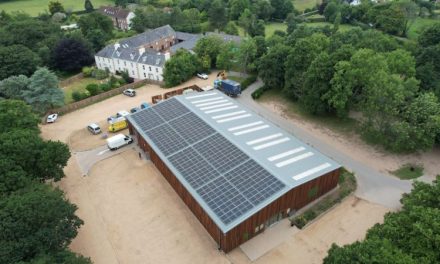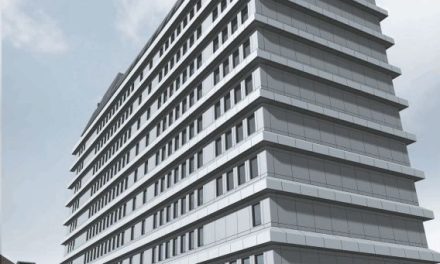 Aberdeen City Council’s recent relocation to Marischal College on Broad Street is a landmark development for many reasons. Predominantly, this is because the council’s new corporate headquarters is a showcase project for sustainability, one that features Priva BMS technology at its core.
Aberdeen City Council’s recent relocation to Marischal College on Broad Street is a landmark development for many reasons. Predominantly, this is because the council’s new corporate headquarters is a showcase project for sustainability, one that features Priva BMS technology at its core.
Occupying an imposing position that commands the Aberdeen skyline, Marischal College has origins dating back to 1593. The current structure is around a century old and is in fact the world’s second largest granite building behind only ‘The Escorial’ in Madrid.
The previous headquarters at St Nicholas House was constructed in 1966 with a 30 year lifespan and did not harbour a future for the council. Furthermore, compared with redevelopment of St Nicholas House, new construction on a green field site or Marischal College, the latter provided the best value option, as well as adding weight to the city’s ambition of becoming ‘the energy capital of Europe into the future’. This groundbreaking project paves the way for the renewal of the city centre, the creation of a new civic focal point and brings back into use a building that has been lying vacant for some years.
The £68m scheme required the demolition of the interior of the building and the creation of 174,000ft2 of modern office space over four floors for up to 1,300 council staff. All granite elevations of the building were retained.
The tender issued by the appointed team of architects engaged consulting engineers, Wallace Whittle of Glasgow, which had the responsibility of designing the internal building services complete with woodchip fuelled, biomass served, environmentally sustainable heating system. However, as one of the UK’s most northerly cities, Aberdeen is notorious for its harsh climate on the shores of the North Sea. With this in mind, suitable back-up for the biomass boiler was required, and here Wallace Whittle turned to Priva partner, Campbell Control Services, a specialist in automatic building control systems.
Two back-up gas boilers were deployed to support the biomass system in the event of a fault or empty fuel situation. Both boiler houses located on the lower ground floor feature panels with Priva Compri HX8E BMS controllers their heart, as well as touchscreen display, U18 universal input modules, DI12S digital input modules and RO6MS digital input/relay output modules.
The boilers are arranged to operate in a step controlled manner to achieve the required boiler return temperature, with the set point available to the operator via the Priva BMS. When required, the boilers are sequenced on a ‘first on/last off’ basis. This provides a continuously rotating boiler sequence, ensuring the boiler modules have equal duty operation.
The integration of Priva technology at Marischal College extends beyond control panels for back-up gas boilers. For example, the heating and cooling of the building is provided by individual ceiling mounted water source heat pumps which integrate with the Priva system for time/temperature control. Priva’s Compri HX4’s aid the supply and regulation of water to these pumps, populating 16 control panels located across all floors. Each heat pump has the capability of transferring excess heat to cooler parts of the building. This helps minimise the building total energy demand. In addition, the main heat rejection plant which consists of adiabatic coolers – thus maximizing cooling by fresh air – are also monitored and controlled by the Priva system.




